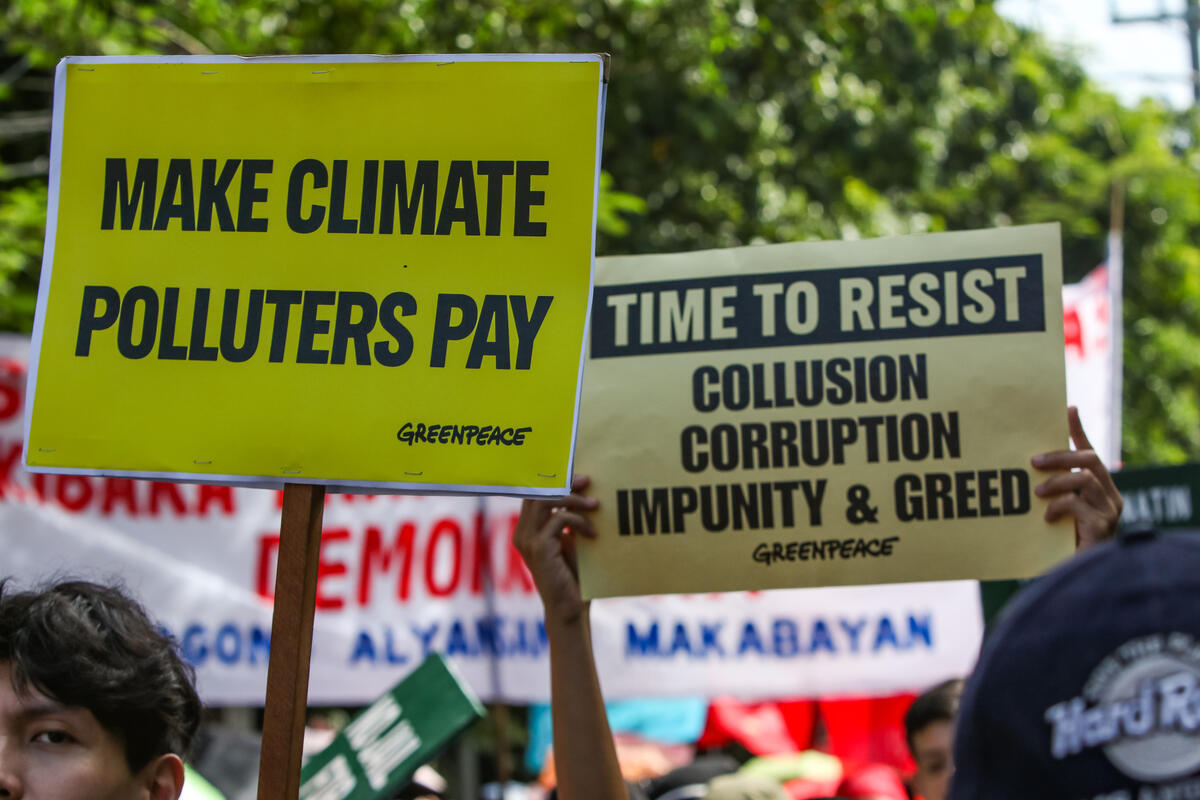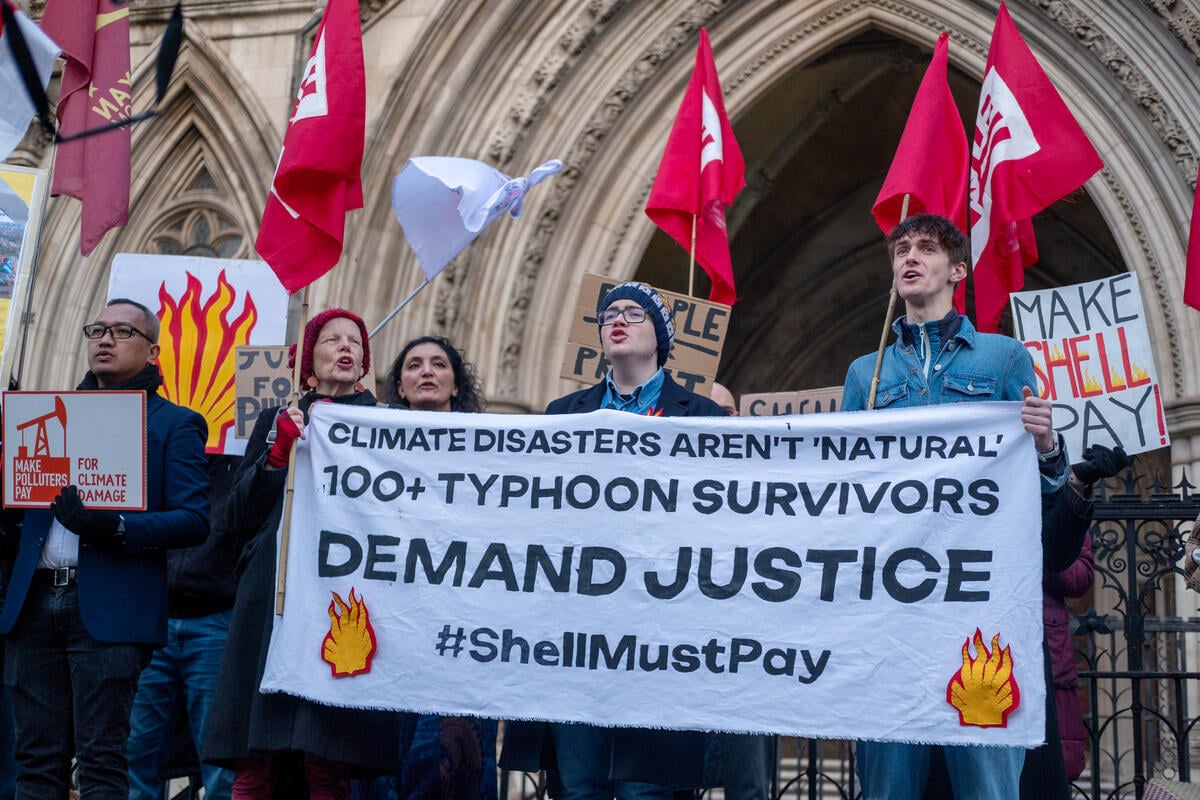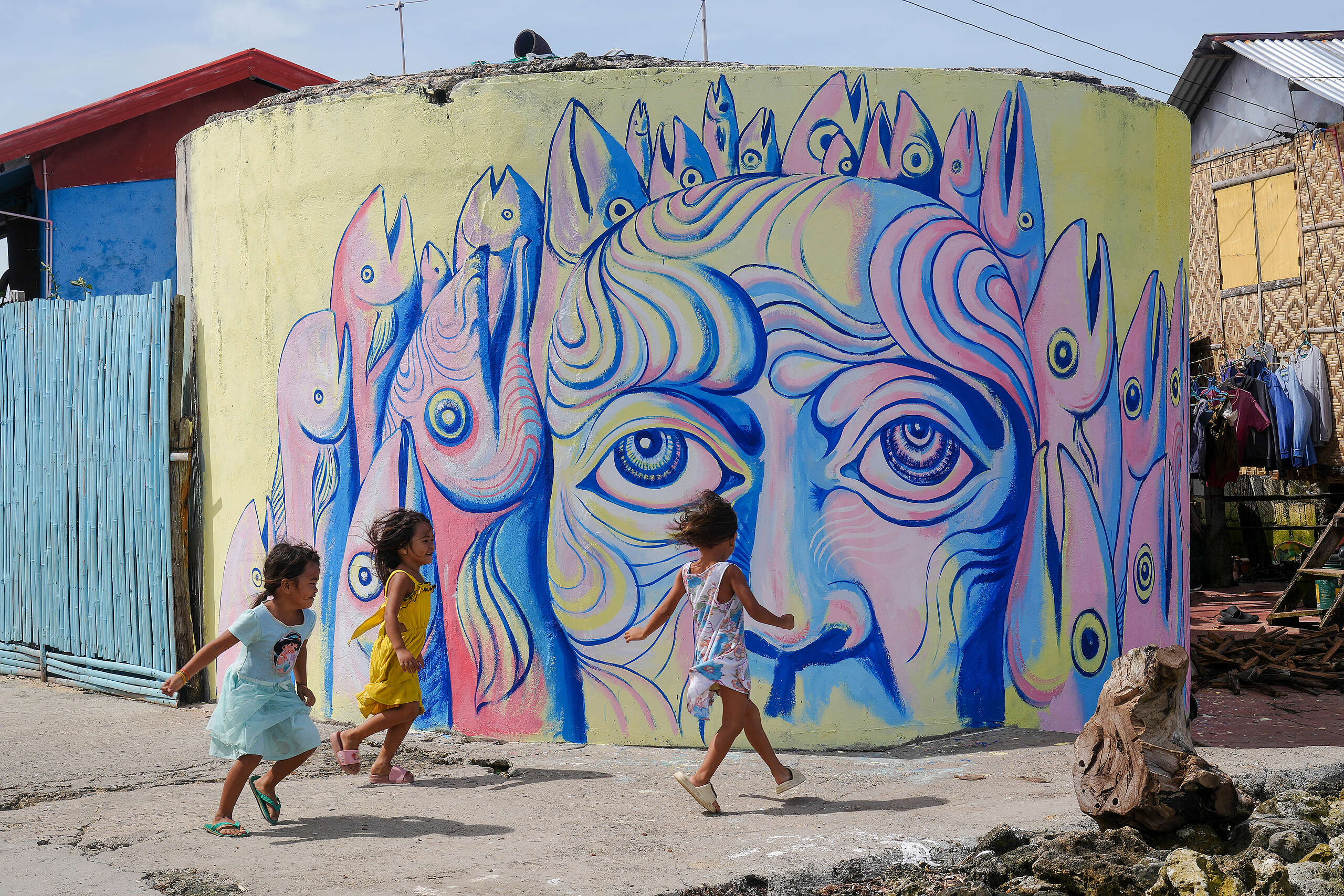Quezon City — Typhoon Ofel, the fifth major storm to bear down on the Philippines in less than a month, intensified into a super typhoon this morning, sending signal no. 5 winds over parts of a beleaguered Cagayan province, which is struggling to recover from the four previous storms–Severe Tropical Storm Nika, Super Typhoon Leon, Typhoon Marce, and Severe Tropical Storm Kristine.
Greenpeace Philippines called on the Philippine government, as well as the Philippine Delegation to the 29th United Nations Climate Change Conference (COP29), to seek justice for affected communities and payments for losses and damages from the biggest climate polluters, fossil fuel companies.
Greenpeace Campaigner Khevin Yu said,
“The Philippine government must lead urgent calls for accountability and reparations from climate polluters–aside from a fossil fuel phase out. What is happening to storm-battered communities is unjust. It is high time for those most responsible to pay up for escalating loss and damage.
“In three weeks, northern Luzon suffered the effects of Severe Tropical Storm Nika, Super Typhoon Leon, Typhoon Marce, and Severe Tropical Storm Kristine. The persistent winds, rains, and flooding took hundreds of lives, and drove total storm damage to infrastructure and agriculture this year up to PHP26.5 billion. Now, Ofel has become a supertyphoon which has made landfall in the same area today, and yet another storm, Pepito, is waiting for its turn just outside PAR.
“As governments meet in Baku to discuss climate finance, they must come to the realization that the biggest culprits for the escalation of the climate crisis are the fossil fuel companies whose activities must be seen as human rights violations.
“The Philippines, as one of the most vulnerable nations to the effects of climate change, must have local laws to hold polluters accountable. We call on the President to take in what’s been happening to his country and take appropriate action to demand for loss and damage from carbon majors and developed countries.
“Specifically, President Marcos must speed up the passage of the Climate Accountability (CLIMA) Bill, which institutionalizes a national loss and damage mechanism to allow communities to access funds for the harms of climate change.
“Philippine communities have nothing to do with this crisis but are clearly bearing its brunt. We urge the Philippine government as well as delegates to the UN Climate talks to ensure that climate polluters acknowledge their responsibility for the climate crisis and pay reparations to communities.”
For more information and interview requests, please contact:
Karl Orit, Communications Campaigner
Greenpeace Southeast Asia – Philippines
[email protected] | +63 9194571064 (Viber & WhatsApp)
REFERENCES:
- A Climate Justice Agenda for the Philippines
- National Inquiry on Climate Change Report by the Commission on Human Rights,on the landmark investigation into the possible human rights violations of the 47 biggest fossil fuel and cement companies (“Carbon Majors”) resulting from climate change
- Enforcing Accountability: Holding Fossil Fuel Companies Liable for the Climate Crisis



